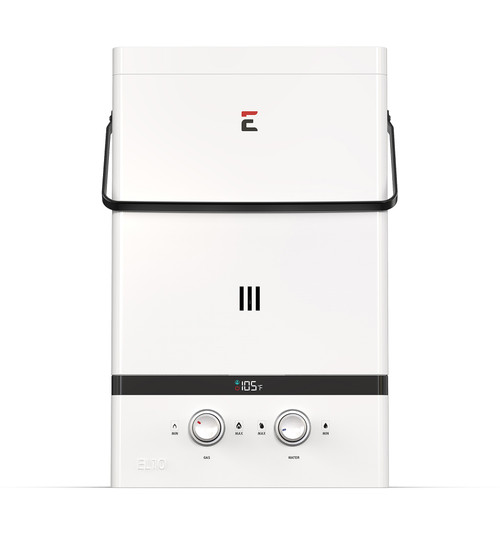
Image Source – Google
Are you tired of waiting for hot water to reach your faucet or shower? Say goodbye to cold showers and hello to instant hot water with a demand water heater.
If you want to buy a water heater online then you may visit this website. This article explores the benefits and technology behind demand water heaters, also known as tankless water heaters, and how they can revolutionize your home's hot water system.
How Demand Water Heaters Work
Demand water heaters provide hot water only when needed, eliminating the standby energy losses of traditional water heaters that continuously heat and reheat water in a tank. Here's how demand water heaters work:
- When a hot water tap is turned on, cold water enters the unit.
- An electric element or gas burner heats the water instantaneously as it flows through the unit's heat exchanger.
- The hot water is delivered to the faucet or shower at the desired temperature.
- When the hot water tap is turned off, the unit stops heating water, saving energy.
Benefits of Demand Water Heaters
Demand water heaters offer several advantages over traditional tank water heaters:
- Energy Efficiency: Demand water heaters are more energy-efficient as they only heat water when needed, reducing standby energy losses.
- Continuous Hot Water: With a demand water heater, you'll never run out of hot water, unlike tank water heaters that can deplete their hot water supply.
- Space-Saving: Demand water heaters are compact and can be installed in tight spaces, saving valuable floor space in your home.
- Longer Lifespan: Demand water heaters typically have a longer lifespan than traditional tank water heaters, reducing the frequency of replacements.
- Reduced Water Waste: Since hot water is delivered instantaneously, you'll waste less water waiting for it to heat up, leading to water conservation.
Types of Demand Water Heaters
There are two main types of demand water heaters based on the heating source:
Electric Demand Water Heaters
Electric demand water heaters use electric resistance heating elements to heat water. They are suitable for smaller households with lower hot water demand.
Gas (Natural Gas or Propane) Demand Water Heaters
Gas demand water heaters use a gas burner to heat water. They are ideal for larger households with higher hot water demand and are often more cost-effective than electric models in the long run.
Both electric and gas demand water heaters come in a variety of sizes and flow rates to accommodate different household sizes and hot water needs.
Installation and Maintenance
Installing a demand water heater requires professional expertise to ensure proper sizing and safe operation. Here are some key points to consider:
Installation
- Choose the right size and type of demand water heater for your home's hot water needs.
- Position the unit close to the hot water fixtures to minimize heat loss in the pipes.
- Ensure proper venting for gas demand water heaters to vent combustion gases safely outdoors.
- Follow manufacturer's guidelines for installation and hire a qualified plumber or HVAC technician for the job.
Maintenance
To keep your demand water heater running efficiently, follow these maintenance tips:
- Flush the unit annually to remove mineral deposits and maintain optimal performance.
- Check for leaks, unusual noises, or fluctuations in water temperature, which may indicate a problem with the unit.
- Schedule regular professional inspections to ensure the unit is in good working condition.
- Refer to the manufacturer's maintenance recommendations in the user manual for specific guidance.
Is a Demand Water Heater Right for You?
Consider the following factors to determine if a demand water heater is the right choice for your home:
Hot Water Usage
- Assess your household's hot water usage patterns, including the number of occupants and daily hot water activities.
- If you have high hot water demand, a demand water heater may be more suitable to ensure continuous hot water supply.
Energy Efficiency Goals
- If you're looking to reduce energy consumption and lower utility bills, a demand water heater can help you achieve greater energy efficiency.
- Calculate potential energy savings based on your current water heating system to determine the cost-effectiveness of switching to a demand water heater.
Space Constraints
- If you have limited space for a traditional tank water heater, a compact demand water heater can be a space-saving alternative.
- Consult with a professional installer to determine the best location and size for your demand water heater installation.